India Sets Implementation Date for Quality Control Orders on Key Chemical and Polymer Products
On March 11, 2025, the Ministry of Chemicals and Fertilizers in India issued three separate Quality Control Amendment Orders for Ethylene Dichloride, Vinyl Chloride Monomer, and Polycarbonate. These amendments are part of ongoing regulatory measures under the Bureau of Indian Standards (BIS) Act, 2016, and each order updates the enforcement timeline of its respective 2021 Quality Control Order. According to the notifications, the amended orders will officially come into effect on September 12, 2025, aligning the compliance deadlines for these critical industrial materials. Ethylene Dichloride, Vinyl Chloride Monomer, and Polycarbonate usually require BIS ISI certification in order to be approved for import and sale in India.

The move is aimed at ensuring product quality and consistency in sectors that rely heavily on these substances, including plastics manufacturing and petrochemical industries. The amendments reflect the Indian government’s continued commitment to strengthening product standards and protecting public interest through more rigorous oversight of material specifications and compliance timelines.
If you are interested in understanding what requirements are needed for your product to be imported into India, please do not hesitate to contact us by email or phone (Europe: +49-69-271 37 69 261, US: +1 773 654-2673). If a certification need is discovered we can provide a quotation to make sure that all your certification needs are covered.
If you have any questions you can also use our chat-window in the bottom right. (Please check your browser settings if you can’t see the window)
For more information about BIS certification, please refer to our free brochure “BIS Certification Made Easy“.
India revises Compliance Deadline for Toluene Quality Standards
The Ministry of Chemicals and Fertilizers, through the Department of Chemicals and Petrochemicals, has issued the Toluene (Quality Control) First Amendment Order, 2024. This amendment, notified on December 23, 2024, under the authority of the Bureau of Indian Standards Act, 2016, revises the effective date of the original 2021 order. Specifically, sub-paragraph (2) of paragraph 1 in the original order is now substituted to state that the revised regulations will come into force on December 22, 2025. Many chemicals usually require BIS certification in order to be approved for import and sale in India.

The principal Toluene Quality Control Order was initially published on December 24, 2021, and has undergone multiple amendments in June 2022, December 2022, June 2023, and December 2023. These updates reflect ongoing regulatory adjustments to maintain quality standards and ensure public safety related to chemical substances.
If you are interested in understanding what requirements are needed for your product to be imported into India, please do not hesitate to contact us by email or phone (Europe: +49-69-271 37 69 261, US: +1 773 654-2673). If a certification need is discovered we can provide a quotation to make sure that all your certification needs are covered.
If you have any questions you can also use our chat-window in the bottom right. (Please check your browser settings if you can’t see the window)
For more information about BIS certification, please refer to our free brochure “BIS Certification Made Easy“.
BIS Standards – Implementations next Month – April 2025
We regularly publish advance information from the Bureau of Indian Standards (BIS) on new Quality Control Orders that will come into effect shortly. Affected products must have BIS certification in order to be approved for import and distribution in India. Within the next month, several standards will come into effect, including for ethyl acrylates, various textiles, steel ropes, various aluminum products and several types of fatty acids.
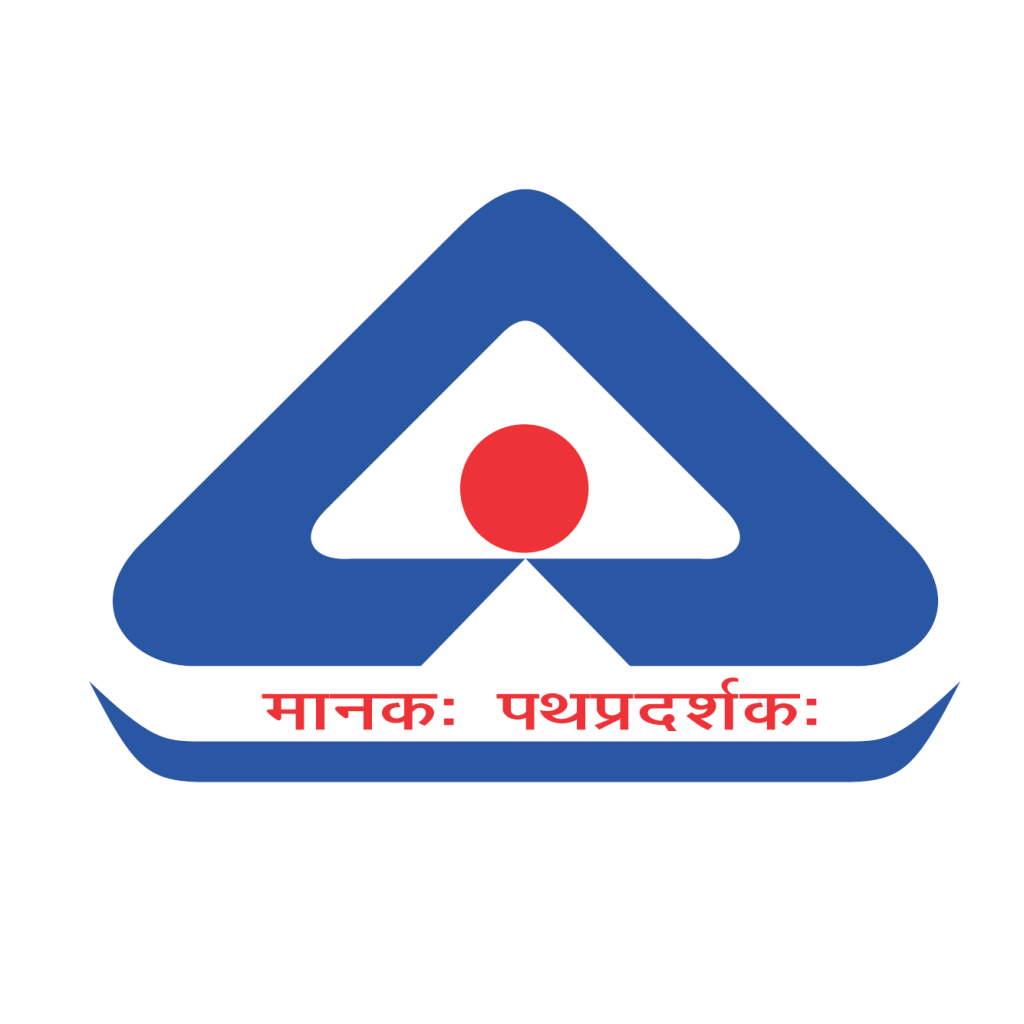
The Bureau of Indian Standards (BIS) Quality Control Orders (QCOs) are mandatory regulations that ensure that certain products meet national quality standards. While BIS standards are usually voluntary, QCOs make compliance mandatory for affected products. This serves to protect people, animals and the environment as well as to ensure product quality in India. QCOs apply to a wide range of products such as chemicals, metals, toys and electrical appliances. Violations of QCOs can result in severe penalties, including fines or imprisonment.
Here is an overview of the new Quality Control Orders that will come into force next month:
| Product/ Produkt | Indian Standard/ Indischer Standard | Enforcement date / Implementierungsdatum |
| Ethyl Acrylate | IS 14708:1999 | 31 March 2025 |
| Vinyl Acetate Monomer | IS 12345:1988 | 31 March 2025 |
| Methyl Acrylate | IS 14707:1999 | 31 March 2025 |
| Textiles – Flat woven webbing slings made of man-made fibres for general services | IS 15041:2001 | 01 April 2025 |
| Geosynthetics — Synthetic Polymer RopeGabions for Coastal and Waterways Protection — Specification | IS 17880 :2022 | 01 April 2025 |
| Textiles — Manila Ropes — Specification | IS 1084:2005 | 01 April 2025 |
| Fibre Ropes — Polyester — 3-, 4-, 8- and 12- Strand Ropes | IS 11066:2022 | 01 April 2025 |
| Textiles — Composite Synthetic Fibre Ropes — Specification | IS 14928:2001 | 01 April 2025 |
| Mixed Polyolefin Fibre Ropes | IS 14929: 2022 | 01 April 2025 |
| Steel wire ropes – Fibre main cores – Specification | IS 1804:2004 | 01 April 2025 |
| Fibre Ropes — Polyamide — 3-, 4-, 8- and 12- Strand Ropes | IS 4572:2022 | 01 April 2025 |
| Fibre Ropes — Polypropylene Split Film, Monofilament And Multifilament ( PP2 ) and Polypropylene High-Tenacity Multifilament ( PP3 ) —3-, 4-, 8- and 12- Strand Ropes | IS 5175:2022 | 01 April 2025 |
| Fibre Ropes — Polyethylene —3- And 4-Strand Ropes | IS 8674 : 2013 | 01 April 2025 |
| Fibre Ropes Of Polyester / Polyolefin dual Fibres | IS 17609 : 2021 | 01 April 2025 |
| Stainless Steel Utensils | IS 14756:2022 | 01 April 2025 |
| Wrought Aluminium Utensils | IS 1660:2009 | 01 April 2025 |
| Stainless Steel Sinks for Domestic Purposes | IS 13983:1994 | 01 April 2025 |
| Round Open Top Sanitary Cans for Foods and DrinksTinplate | IS 9396 (Part 1): 1987 | 01 April 2025 |
| Aluminium cans for beverages | IS 14407:1996 | 01 April 2025 |
| Safety or household and similar electrical appliancesparticular requirements – commercial dispensing appliances and vending machine | IS 302 (Part 2/Sec 75): 2018 | 01 April 2025 |
| Aluminium alloy tubes for irrigation purposes -welded tubes | IS 7092 (Part 1):1992 | 01 April 2025 |
| Aluminium alloy tube for irrigation purposes – extruded tube | IS 7092 (Part 2):1987 | 01 April 2025 |
| EC Grade Aluminium Rod produced by Continuous Casting and Rolling | IS 5484:1997 | 01 April 2025 |
| Wrought aluminium and aluminium alloy bars, rods and sections (For General Engineering Purposes) | IS 733:1983 | 01 April 2025 |
| Wrought aluminium and aluminium alloys, forging stock and forgings for general engineering purposes | IS 734:1975 | 01 April 2025 |
| Wrought aluminium and aluminium alloy plate for general engineering purposes | IS 736:1986 | 01 April 2025 |
| Wrought aluminium and aluminium alloy sheet and strip for general engineering purposes | IS 737:2008 | 01 April 2025 |
| Wrought aluminium and aluminium alloy wire for general engineering purposes | IS 739:1992 | 01 April 2025 |
| Wrought aluminium and aluminium alloy rivet stock for general engineering purposes | IS 740:1977 | 01 April 2025 |
| Wrought aluminium and aluminium alloy bars, rods, tubes, sections, plates and sheets for electrical applications | IS 5082:1998 | 01 April 2025 |
| Aluminium and aluminium alloy foil for pharmaceutical packaging | IS 16011:2012 | 01 April 2025 |
| Aluminium composite panel | IS 17682:2021 | 01 April 2025 |
| Wrought aluminium and aluminium alloys- Extruded round tube and hollow section for general engineering purposes | IS 1285:2002 | 01 April 2025 |
| Wrought Aluminium Wire for Electrical Purposes | IS 2067:1975 | 01 April 2025 |
| Wrought aluminium and aluminium alloys for manufacture of utensils | IS 21:1992 | 01 April 2025 |
| Corrugated Aluminium Sheet | IS 1254:2007 | 01 April 2025 |
| Aluminium alloy forging stock and forgings (Alloy 24345) for aerospace applications | IS 7902:2001 | 01 April 2025 |
| Safety of household and similar electrical appliances – particular requirements – domestic electric clothes washing machines | IS 302 (Part 2/Sec 7): 2010 | 01 April 2025 |
| Evaporative Air Coolers (Desert Coolers) | IS 3315:2019 | 01 April 2025 |
| Air Filters for general ventilation – Technical specifications requirements and Classification system based upon particulate matter efficiency (ePM) | IS 17570 (Part 1): 2021 ISO 16890-2: 2016 | 01 April 2025 |
| Solar Flat Plate Collector for Solar Water Heating Systems | IS 12933 (Part 1): 2003 IS 12933 (Part 2): 2003 | 14 April 2025 |
| All Glass Evacuated Tubes Solar Water Heating System | IS 16544: 2016 | 14 April 2025 |
| Storage Water Tank for All Glass Evacuated Tubes Solar Water Heating Systems | IS 16542: 2016 | 14 April 2025 |
| Lauric Acid | IS 10931: 1984 | 24 April 2025 |
| Acid Oil | IS 12029:1986 | 24 April 2025 |
| Palm Fatty Acids | IS 12067: 1987 | 24 April 2025 |
| Rice Bran Fatty Acids | IS 12068: 1987 | 24 April 2025 |
| Coconut Fatty Acids | IS 12069: 1987 | 24 April 2025 |
| Hydrogenated Rice Bran Fatty Acids | IS 12361: 1988 | 24 April 2025 |
If you are interested in understanding what requirements are needed for your product to be imported into India, please do not hesitate to contact us by email or phone (Europe: +49-69-271 37 69 261, US: +1 773 654-2673). If a certification need is discovered we can provide a quotation to make sure that all your certification needs are covered.
If you have any questions you can also use our chat-window in the bottom right. (Please check your browser settings if you can’t see the window)
For more information about BIS certification, please refer to our free brochure “BIS Certification Made Easy“.
India introduces mandatory BIS Certification for Domestic Water Heaters
The Indian government has issued the Electrical Appliances for Domestic Water Heating (Quality Control) Order, 2025, under the Bureau of Indian Standards (BIS) Act, 2016. This new regulation, which replaces the 2023 Quality Control Order, mandates that all specified domestic water heating appliances must conform to the relevant Indian Standards and bear the BIS Standard Mark. The certification will be granted under Scheme-1 of Schedule-II of the BIS (Conformity Assessment) Regulations, 2018. However, exemptions apply to products manufactured for export and a limited number of imports for research and development. The Bureau of Indian Standards (BIS) will serve as the certifying and enforcement authority, and non-compliance may result in penalties under the BIS Act, 2016.
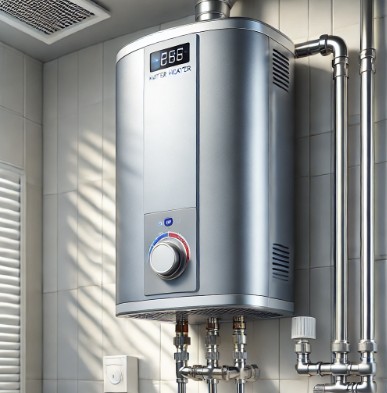
The order includes various types of electric water heaters, such as stationary storage type, electric instantaneous, and immersion water heaters, each aligning with specific Indian Standards. The implementation timeline varies: for general enterprises, the mandate takes effect on March 1, 2025; for small enterprises, compliance is required by June 1, 2025; and for micro enterprises, the deadline is September 1, 2025. The latest amendments to the relevant Indian Standards, as notified by the BIS, will apply.
If you are interested in understanding what requirements are needed for your product to be imported into India, please do not hesitate to contact us by email or phone (Europe: +49-69-271 37 69 261, US: +1 773 654-2673). If a certification need is discovered we can provide a quotation to make sure that all your certification needs are covered.
If you have any questions you can also use our chat-window in the bottom right. (Please check your browser settings if you can’t see the window)
For more information about BIS certification, please refer to our free brochure “BIS Certification Made Easy“.
Revised Enforcement Date for BIS Quality Control on PVC Homopolymers
The Bureau of Indian Standards (BIS) has introduced a new amendment to the Polypropylene (PP) Materials for Moulding and Extrusion (Quality Control) Order, 2024. The amendment, issued by the Ministry of Chemicals and Fertilizers, modifies paragraph 1, sub-paragraph (2) of the original order, changing the enforcement date to June 24, 2025. The original order was first published on February 26, 2024, and later revised on August 23, 2024.
Poly Vinyl Chloride (PVC) Homopolymers typically require BIS certification to be approved for import and sale in India.
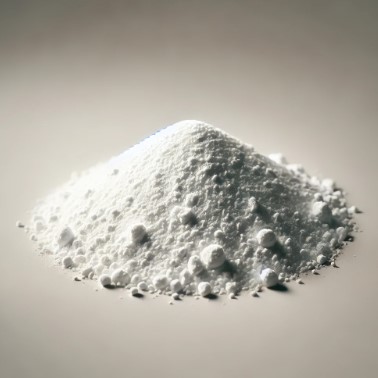
If you are interested in understanding what requirements are needed for your product to be imported into India, please do not hesitate to contact us by email or phone (Europe: +49-69-271 37 69 261, US: +1 773 654-2673). If a certification need is discovered we can provide a quotation to make sure that all your certification needs are covered.
If you have any questions you can also use our chat-window in the bottom right. (Please check your browser settings if you can’t see the window)
For more information about BIS certification, please refer to our free brochure “BIS Certification Made Easy“.
India delays BIS Implementation for HDPE/PP Woven Sacks until June 2025
The Ministry of Chemicals and Fertilizers has issued amendments to the Quality Control Orders (QCOs) for High-Density Polyethylene (HDPE) and Polypropylene (PP) woven sacks used for various packaging applications. The enforcement date for all three QCOs has been extended from December 6, 2024, to June 6, 2025. High-Density Polyethylene (HDPE) and Polypropylene (PP) products generally require BIS certification to be approved for import and sale in India.
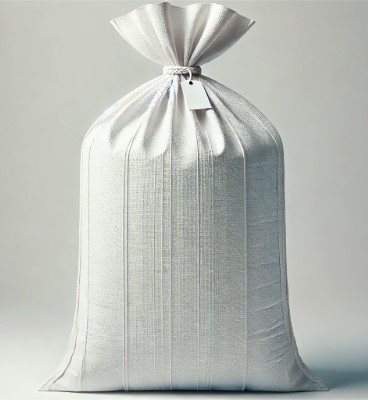
The amendments affect the following products:
- HDPE/PP Woven Sacks for 50 kg Cement Packaging – Revised enforcement date: June 6, 2025.
- PP Woven, Laminated, Block Bottom Valve Sacks for 50 kg Cement Packaging – Revised enforcement date: June 6, 2025.
- PP/HDPE Laminated Woven Sacks for Mail Sorting, Storage, Transport, and Distribution – Revised enforcement date: June 6, 2025.
These changes aim to provide manufacturers and stakeholders additional time for compliance with the Bureau of Indian Standards (BIS) requirements.
If you are interested in understanding what requirements are needed for your product to be imported into India, please do not hesitate to contact us by email or phone (Europe: +49-69-271 37 69 261, US: +1 773 654-2673). If a certification need is discovered we can provide a quotation to make sure that all your certification needs are covered.
If you have any questions you can also use our chat-window in the bottom right. (Please check your browser settings if you can’t see the window)
For more information about BIS certification, please refer to our free brochure “BIS Certification Made Easy“.
Updated Certification Guidelines for Telecom Equipment in India
The Ministry of Communications in India has announced an update regarding the acceptance of ILAC-accredited test reports under the Mandatory Testing and Certification of Telecom Equipment (MTCTE) program. As per the latest notification, ILAC test reports from laboratories in non-border-sharing countries will remain valid until June 30, 2025. However, the reports must be no older than two years at the time of submission on the MTCTE portal. The products covered include equipment such as 4G and 5G cellular base stations, VHF and UHF radio systems, and E-band fixed radio relay systems, classified under phases III and IV of MTCTE. Telecom and networking equipment typically require TEC certification for import and sale in India.

Additionally, the government has extended the exemption from submitting test reports for specific technical parameters across various equipment categories. This includes parameters such as frequency bands, maximum transmit power, and synchronization standards for products like Mobile Radio Trunking Systems, VDSLx, and optical fiber cables. This exemption will also remain in effect until June 30, 2025, unless further revised.
The TEC certification has been mandatory since April 2019. Every year the Telecommunication Engineering Center (TEC) expands the certification catalog and adds more telecom products. See the list of TEC standards here.
If you are interested in understanding what requirements are needed for your product to be imported into India, please do not hesitate to contact us by email or phone (Europe: +49-69-271 37 69 261, US: +1 773 654-2673).
For more information about TEC certification, please refer to our free brochure “TEC Certification Made Easy“.
BIS – New Quality Control Orders for Hinges
Last year the Bureau of Indian Standards (BIS) has announced new Quality Control Orders (QCOs) that took effect starting January 1, 2025. Products falling under these orders must obtain BIS certification to be approved for import and sale in India. The affected products include various types of hinges, among others.
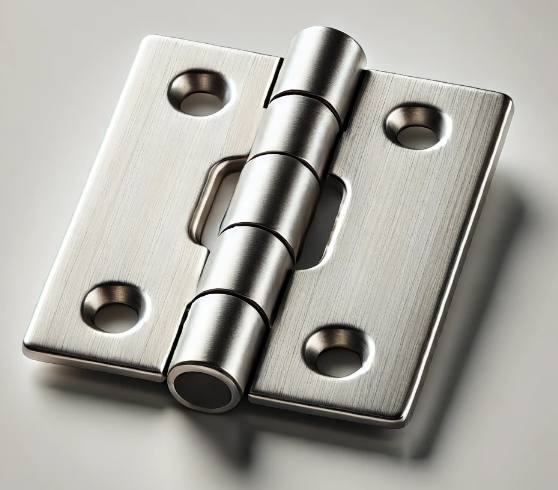
These QCOs are issued under the Department for Promotion of Industry and Internal Trade and cover the following standards: IS 12817:2020 for stainless steel butt hinges, IS 1341:2018 for steel butt hinges, IS 205:1992 for non-ferrous metal butt hinges, IS 206:2010 for tee and strap hinges, IS 362:1991 for parliament hinges, IS 3818:1992 for continuous (piano) hinges, IS 3843:1995 for steel back flap hinges, IS 453:1993 for double-acting spring hinges, and IS 18297:2023 for cabinet hinges.
If you are interested in understanding what requirements are needed for your product to be imported into India, please do not hesitate to contact us by email or phone (Europe: +49-69-271 37 69 261, US: +1 773 654-2673). If a certification need is discovered we can provide a quotation to make sure that all your certification needs are covered.
If you have any questions you can also use our chat-window in the bottom right. (Please check your browser settings if you can’t see the window)
For more information about BIS certification, please refer to our free brochure “BIS Certification Made Easy“.
BIS Updates Quality Standards for Hand Tools
The Bureau of Indian Standards (BIS) has recently introduced an update to the Indian Standard for Hand Tools (Quality Control) Order, 2024. This update is applicable to current license holders, new applicants, manufacturers, importers, and distributors of hand tools and wrenches. Compliance with the updated BIS guidelines ensures that products meet specified quality standards and safety requirements. Hand tools typically require BIS certification to be approved for import and sale in India.

Manufacturers and other stakeholders are encouraged to review the detailed guidelines under the BIS QCO for hand tools and wrenches to ensure full compliance. Obtaining ISI certification for hand tools not only ensures adherence to quality regulations but also enhances market credibility and consumer trust.
If you are interested in understanding what requirements are needed for your product to be imported into India, please do not hesitate to contact us by email or phone (Europe: +49-69-271 37 69 261, US: +1 773 654-2673). If a certification need is discovered we can provide a quotation to make sure that all your certification needs are covered.
If you have any questions you can also use our chat-window in the bottom right. (Please check your browser settings if you can’t see the window)
For more information about BIS certification, please refer to our free brochure “BIS Certification Made Easy“.
BIS Revises IS 302 Standard for Household Electrical Appliances
The Bureau of Indian Standards (BIS) has revised IS 302 (Part 1): 2024, the standard for household electrical appliances, to enhance safety requirements for devices operating up to 250 V (single-phase) and 480 V (other applications, including DC and battery-powered devices). This revision brings IS 302 in line with the latest international standard IEC 60335-1, ensuring improved safety protocols. Updates include clarified guidelines for PELV circuits, revised power input and current measurement methods for variable operating cycles, and enhanced provisions for battery-powered appliances and metal-ion batteries, such as new charging protocols. Household electrical appliances usually require BIS certification to be approved for sale in India.
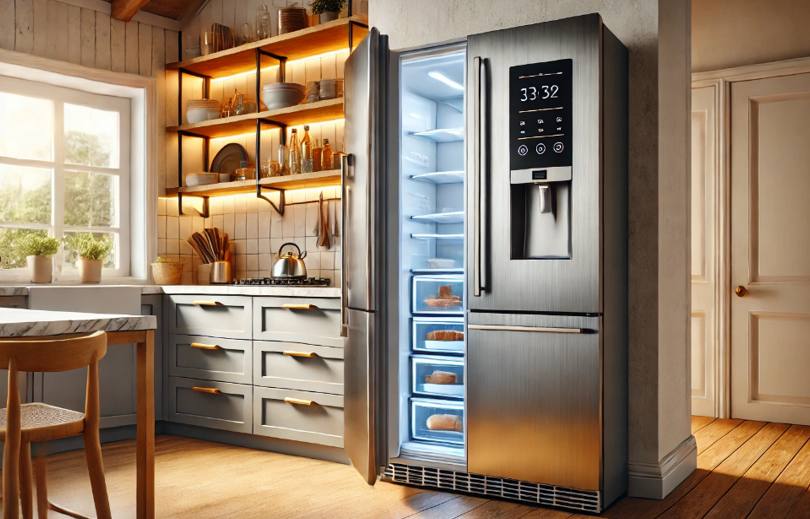
Further updates focus on durability and safety enhancements. Enhanced moisture resistance tests now apply to appliances with automatic cord reels and those with IP ratings. Safeguards for optical radiation hazards have been introduced. Additionally, a new Class III appliance symbol has been introduced, alongside updated requirements for battery charging and discharging. The amendment also sets new standards for humidity tests, electronic circuit evaluations, and components like telecommunication interfaces, thermal links, relays, lamps, and cord sets. While these changes are not mandatory yet, they will become compulsory after February 23, 2025, when the existing standard will be officially withdrawn.
If you are interested in understanding what requirements are needed for your product to be imported into India, please do not hesitate to contact us by email or phone (Europe: +49-69-271 37 69 261, US: +1 773 654-2673). If a certification need is discovered we can provide a quotation to make sure that all your certification needs are covered.
If you have any questions you can also use our chat-window in the bottom right. (Please check your browser settings if you can’t see the window)
For more information about BIS certification, please refer to our free brochure “BIS Certification Made Easy“.



